Tatyana Ilchenko: ‘When the market closes half of June with a 60% occupancy rate, it's not high season’
Hotelier on guests' satiety with Kazan, premature tourist tax and rising prices for hotel services
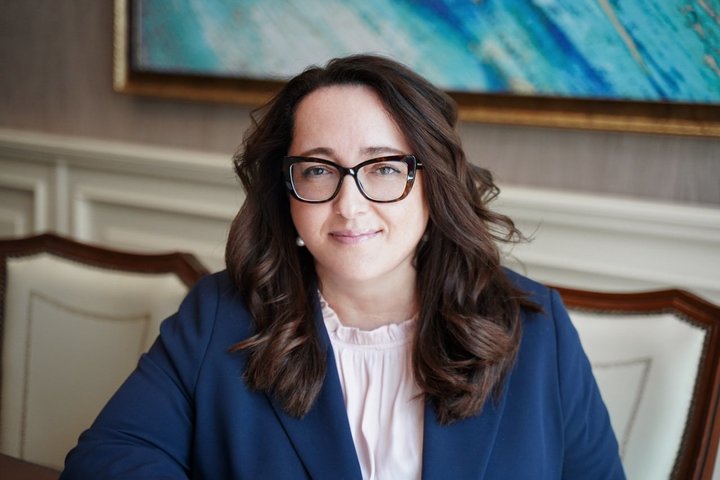
The hotel occupancy rate in Kazan for the first half of June was only 60%. According to hoteliers, this is a fairly low figure during the high season. Sharp fluctuations in demand, like this season, lead to large fluctuations in income and organizational difficulties. This is why hotels are forced to raise prices, hoteliers say. In an interview with Realnoe Vremya, Director of Zorge Hospitality management company Tatyana Ilchenko spoke about how much more expensive accommodation has become compared to other large cities, what pricing depends on and how to increase the attractiveness of the city.
“This cannot be considered a high season”
Mrs Ilchenko, in the hotel business, we are used to considering the period from 15 April to 15 September as the high season. Does it justify its name this year?
The term high season is often used in hospitality to denote periods when demand reaches its peak. These periods usually coincide with favourable weather conditions, holidays or events, which leads to an increase in the number of visitors.
But when the market closes the second half of April with 66% occupancy, May with 65% occupancy, and the first half of June with 60% occupancy, this cannot be considered a high season. And this is exactly what we are seeing this year.
Seasonality is an important factor that affects the hotel business, affecting occupancy rates, revenues and overall profitability. Understanding seasonality and effectively managing it is essential for hoteliers to optimize operations and maximize profits throughout the year.
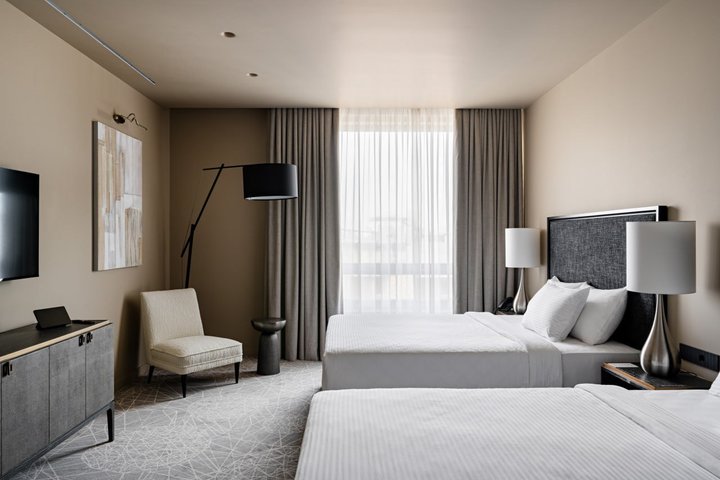
However, the rush during high seasons is accompanied by a number of problems for all hotels, which they attribute to various reasons, especially the last-minute booking culture that, for some reason, is typical for most travellers these days.
Sharp fluctuations in demand, as in this season, lead to large fluctuations in revenue and organizational difficulties. This is why hotels are forced to raise prices in order to make the most of high demand and compensate for the sharp price fluctuations between seasons.
With such fluctuations in seasonal demand, we are forced to constantly adapt marketing strategies for effective coverage during peak and off-peak seasons, as well as cope with staffing difficulties.
During peak periods, it is necessary to hire temporary staff, and during the low season, to retain employees. Therefore, when hiring candidates, we ask: are you ready for a vacation in February and November?
“The cost of accommodation in Kazan hotels has not increased much”
Before the start of the season, the State Committee of the Republic of Tatarstan for Tourism asked hoteliers to “take a balanced approach to setting prices.” Many people think that Kazan is an expensive city, including in terms of hotel accommodation.
I absolutely disagree with this opinion. Let's look at the numbers. Since one of the hotels under our management is conditionally (now) part of an international chain, we have access to statistics on the cost of accommodation in all major cities in the world. Let's take April. Among the Russian regions on the list are Moscow and Saint Petersburg, I also added Kazan. The most expensive rooms are in Geneva, Paris, Tel Aviv. This is more than 300-400 dollars per room per day. In Moscow — about 143 dollars. In Saint Petersburg — 104 dollars. In Kazan — 93.96 dollars. Compared to the same period last year, the growth in the cost of accommodation over the year in Moscow was 19.7%, in St. Petersburg 25.5%, and in Kazan 10%. Numbers are stubborn things. And this is what we have. If someone claims that the cost of accommodation in Kazan hotels has increased significantly in price, then the answer based on numbers is no, it has not.
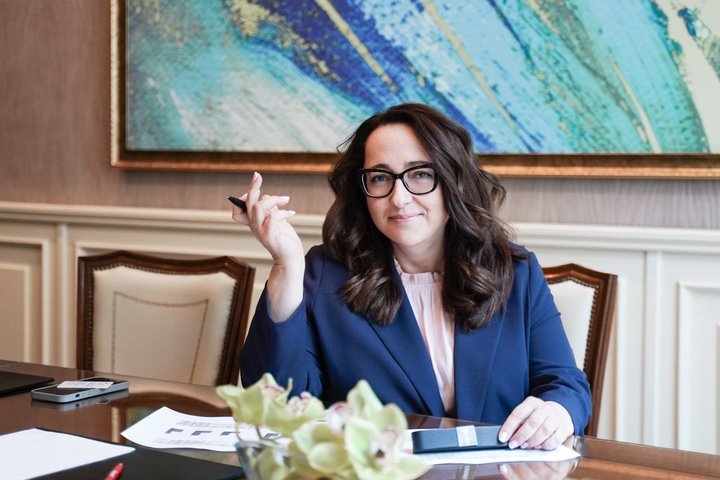
“We have not adapted at all”
In 2025, hoteliers began to pay a tourist tax. The payment deadline for the second quarter will be at the end of June. How have you adapted to the new tax, what problems have you encountered?
We have not adapted at all. In my opinion, they have overcomplicated the formula for collecting the tourist tax, there are too many conditions. A tourist tax of a certain amount per person would be clearer and more transparent. For example, let's say a room costs 8,000 rubles per day. If two people checked into this room and they do not split the cost of their stay into two bills, the hotel will pay 100 rubles in tax, and if two colleagues live in the same room and each pays for themselves, the hotel will pay 200 rubles per day. If a family, for example, paid in March and stayed in April, the tax will be paid upon payment and stay, i.e. in the second quarter. And the accountant needs to take all this into account when calculating the tax and not go crazy.
In one quarter, our hotels receive more than 30,000 guests. Now imagine the amount of work an accountant has to do. Yes, there are programs that help with the calculations, but no programme takes into account there are no payment terms upon the implementation of the law, so you still have to check manually.
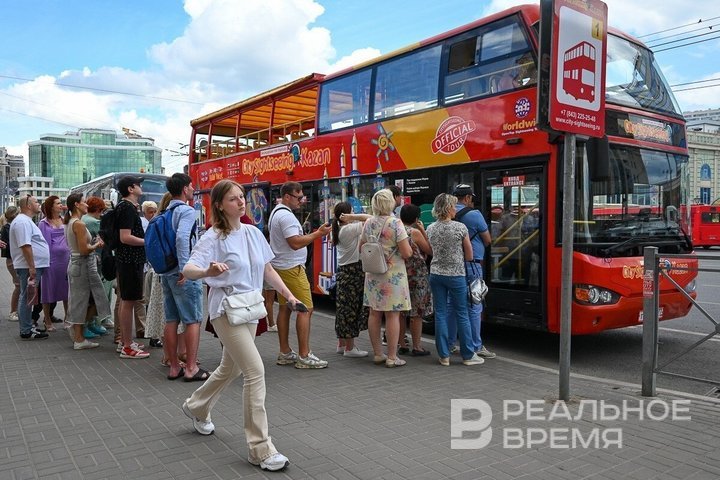
Now the differentiation of the tourist tax depends on the cost of the room, the number of payers staying in one room, and the meals included in the tariff. In fact, the tourist tax has turned into a sales tax. According to the results of the first quarter, we have a real percentage of tourist tax of slightly more than 1% in a four-star hotel and 1.6-1.7% in three-star hotels. In my opinion, this is not very fair.
“The trend of reducing the number of business events continues”
What do you attribute this decrease in hotel occupancy to?
There is very strong competition with apartments that are rented out on a daily basis. In addition, there is a slight saturation with Kazan. All this must be taken into account.
Tatarstan and Kazan were among the first in Russia to start branding the destination. This happened with the help of the Visit Tatarstan brand, which began to be very actively promoted on the market. I applauded and applaud everyone in the republican and local authorities who are involved in this, because it is super cool. In the marketing of tourist destinations, branding is not just logos. It is a complex, comprehensive approach to the creation, development and strengthening of a unique identity of a destination, based on such key elements as reputation, identity, cultural heritage and the value system of a region. And Tatarstan and Kazan were able to do all this.
Before Kazan, only Moscow and a little bit of Saint Petersburg had destination branding. And now everything that Kazan did several years ago is being done or is being tried to be done by all other participants in the Russian tourist market.
And Nizhny Novgorod, and Perm, and many other destinations. All this, of course, is working for them so far. In the media, we are still on the front pages, but we have a lot of competition. In order to withstand it, we must constantly look for drivers.
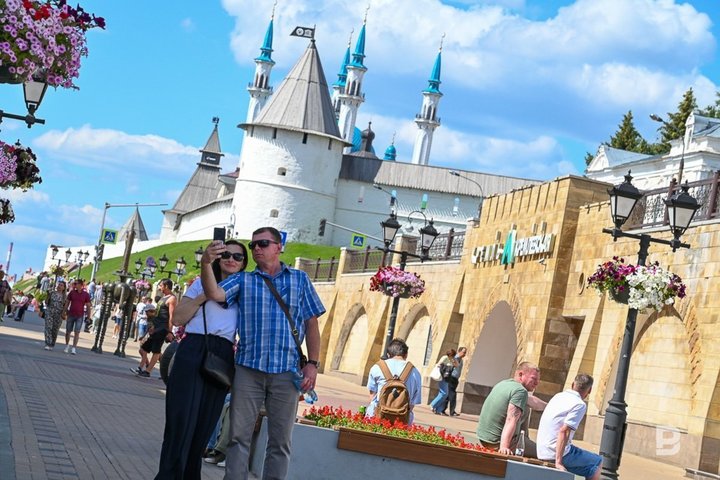
“Kazan lacks UNICS in the Euroleague”
Tourist tax revenues should be used to improve tourism infrastructure. What do you think should be done first?
In most destinations around the world, tourist tax revenues are used to finance marketing and branding, i.e. they are directly invested in promoting tourism. Around the world, these funds are also often used to develop tourism infrastructure, from public toilets and pedestrian or bicycle paths to, for example, the multi-billion dollar Orange County Convention Center near Orlando. Every year, this largest conference hall (the second largest event venue in the United States) hosts more than 200 events and attracts 1.5 million visitors, bringing $2.4 billion to the region's economy.
It seems to me that the fairest thing to do is to select projects and hold an open vote among the region's hoteliers on the priority of implementation. Give hoteliers the opportunity to choose what to spend the money on. That would be fair.
And the simplest thing is to walk the path of a city guest. There is a public transport stop across the street from the old Kamala Theatre. I was recently walking after a basketball game, sat down at this stop to rest and was amazed at how deep the holes in the asphalt were at the stop in the very centre of the city. I sincerely hope that everything will be fixed soon.
What does Kazan and the republic lack to develop the hotel industry?
Affordable bank loans, people in the industry, a longer warm period and UNICS in the Euroleague.